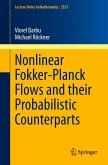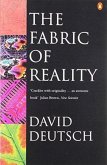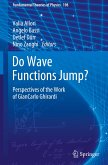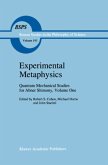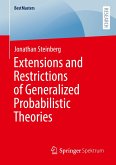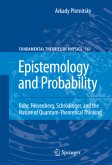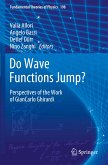This book offers a fundamental description of physics using classical probabilities for events occurring at all times and locations throughout the Universe. The laws of quantum mechanics emerge naturally when focusing on a specific moment in time. Each step is explained in detail through simple systems, such as bits, Ising spins, or fermionic occupation numbers, allowing readers to grasp the core concepts of the modern functional integral approach to fundamental physics without requiring prior knowledge. Notably, probabilistic cellular automata are presented as intriguing quantum systems or as representations of fermionic quantum field theories. Embedding quantum mechanics within classical statistics opens up new avenues for computing, particularly through the use of correlation functions. A small neuromorphic computer, for instance, can learn basic quantum operations without the typical requirement for extreme isolation, as is the case with conventional quantum computers. Ona philosophical level, the book proposes a fresh perspective on science. The content is aimed at readers with a foundational understanding of physics, suitable for advanced students.
Bitte wählen Sie Ihr Anliegen aus.
Rechnungen
Retourenschein anfordern
Bestellstatus
Storno


